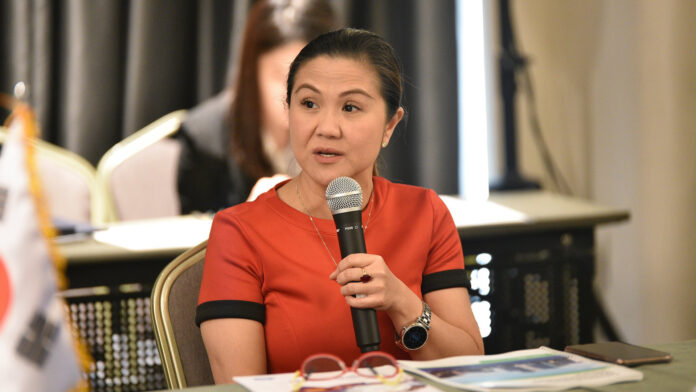Liberalizing the economic provisions in the 1987 Constitution could be the solution to the decades-old problem of forced migration caused by lack of better opportunities in the country, according to Deputy Speaker Bernadette Herrera.
Herrera said the economic Charter amendments proposed by Speaker Lord Allan Velasco under Resolution of Both Houses (RBH) No. 2 would help attract foreign direct investments (FDI), which will translate to more decent jobs and stronger local economy.
“By opening up the economy to foreign investors, we will be bringing the opportunities closer to Filipinos, which means they don’t need to work overseas because high-paying jobs will be available for them here,” said the Bagong Henerasyon Party-list representative.
Herrera said it is about time the government “bring home our overseas Filipino workers” by beefing up foreign investments in the Philippines.
The country’s FDI inflows have been on a decline since 2019. FDI from January to November 2019 amounted to US$6.4 billion, 30 percent lower than the US$9.2 billion recorded in the same period in 2018.
According to the Philippine Statistics Authority, total foreign investments approved in the third quarter of 2020 amounted to only P31 billion, which is 83 percent lower than in the same period in 2019.
Herrera noted that the Philippines also lags behind ASEAN peers in terms of attracting FDI mainly because of foreign ownership restrictions in the Constitution.
“Easing restrictions on foreign investments will surely make the Philippines more foreign investment-friendly,” Herrera said.
The Constitution limits foreign ownership of land and businesses to only 40 percent, and reserves the other 60 percent to Filipino citizens or corporations.
Velasco’s RBH No. 2 seeks to insert the phrase “unless otherwise provided by law” to several sections of the Constitution which restrict foreign ownership of land, natural resources, public utilities, media and advertising.
It provides that by a vote of three-fourths of all its members, the Senate and the House of Representatives voting separately could propose amendments to Articles 12, 14, and 16 of the Constitution.


